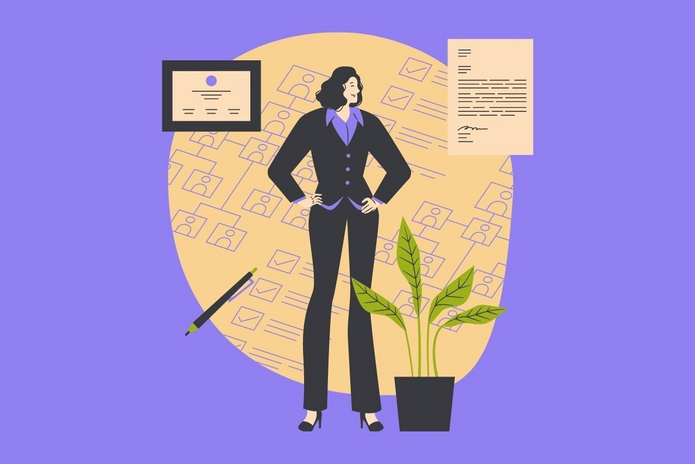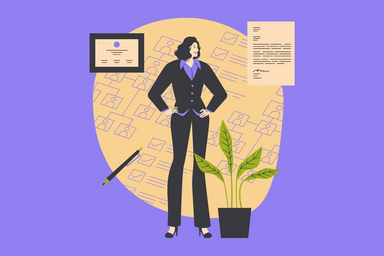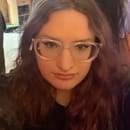Attending the United Nations Headquarters when you’re an 18-year-old college freshman can be an intimidating experience, to say the least. Entering the room, one would find themself sitting beside international delegates, government officials, and leaders and members of grassroots organizations. Over a two week period every year, the U.N. hosts an event called the Commission on the Status of Women (CSW), which is held to discuss gender equality, gender-based issues, and the empowerment of women. The main goal of the CSW is to reach the Agreed Conclusions, which is a large document regarding the steps that will be taken regarding the current year’s issue. Originally started in 1946, the CSW has been a space to advocate for rights and discuss issues for 67 sessions. To prepare for this, I took a public speaking course at Pace University in Fall 2022 with Dr. Marcella Szablewicz and a course on gender and human rights with Dr. Emily Bent in Spring 2023. Through the gender and human rights course, I attended virtual information sessions on different issues relating to gender to prepare for the CSW. After a couple of months of articles, pages upon pages of notes, lectures, and the stressful process of getting a pass for the event, I was officially ready to go to the United Nations Headquarters.
The commission consists of official meetings within the U.N. Headquarters as well as side events hosted by member states. In addition to the “on-campus” headquarter events, there are also events hosted by Non-governmental organizations in surrounding buildings that are open to the public. The priority theme of this year’s CSW was “Innovation and technological change, and education in the digital age for achieving gender equality and the empowerment of all women and girls.” In less technical terms, the main issue that was discussed is the digital gender gap, and how worldwide men have more access to technology, which affects all aspects of life, from education to healthcare.
While making my schedule, I tried to fit in as many diverse topics into my time slots as possible. Specific topics I learned about include cyber security, violence against women journalists, fake news, Sexual and Reproductive Human Rights (SRHR), Gender-Based Violence (GBV), LGBTQ+ issues, misogyny in regard to economic issues, digital innovation, youth involvement, education, period poverty, violence against Indigenous women (Missing and Murdered Indigenous Women (MMIW), and climate change. I met people from all over the globe, including a representative from the Malala Fund, which I was ridiculously excited about. Sexual and reproductive health rights were (unsurprisingly) a hot-button issue this year. I appreciated that most of the events I went to surrounding this issue didn’t take a solely Western perspective. Learning about abortion access – or lack thereof – in other places around the world helped me to better understand our situation here in the States. The global perspective isn’t often brought into reproductive healthcare conversations in North America, so it was refreshing to see this more nuanced approach.
There were downsides to the event, including some bigoted speakers as well as groups who seem to be decades behind everyone else in regard to progression. To name one in particular, “Bridging the Technological Gap While Strengthening Your Mental Health” hosted by The Worldwide Organization for Women. Clearly, neither the event title nor the organization name raised any red flags, however, I sorely misunderstood the theme of the event. I quickly learned that the subtitle of the organization was “Faith, Family, Sovereignty,” and with a quick Google search, my fears were proven true; the faith and family beliefs went hand in hand, with their website saying “[w]e affirm that human life is sacred at all stages of development and must be honored and protected” and “[w]e believe in the sanctity of legal and lawful marriage between a man and woman. This union is necessary for the well-being and protection of children, the family, and society.” While I really wanted to walk away right then and there, I thought that would be hypocritical of me, so I decided to hear the speakers out, even when one of them introduced herself as having been featured on “Tucker Carlson Tonight.” I made it through the whole event, and it went about as well as I expected: middle-aged women from Utah talking about how girls having access to smartphones as teenagers leads to promiscuity. Something I couldn’t disagree with more. The whole event felt like a scared straight assembly, and I didn’t love the implication that if girls are allowed to use digital technology for joy, they will become prostitutes and drug addicts.
There is a lot of hypocrisy as well among some member-states, as they will discuss an issue but not sign onto the agreements about that same issue. As my professor, Dr. Bent, once said, “It is an emotional rollercoaster.” I would have to agree with her on this, as so much happens in such a small time period.
Pseudo-feminism aside, an event that stood out to me as incredibly valuable was “A New Generation of Storytellers” hosted by Queen Angelique Monet of Eti-Oni. The bulk of the event was a film screening of the documentary Holy Prostitution by Cheryl Halpern and Princess Natasha Dematra. The film covered a subject I was unfamiliar with, Mut’ah marriages in Indonesia, in which young women are essentially sold as a bride for a while, typically ranging from several days to a few months. The women in these situations are treated as objects and often are not even allowed outside. The film featured a survivor of this practice anonymously sharing her real experiences. Everyone in this event, panelists and audience members were very open to talking and open to new ideas and information, which was very refreshing. And despite the heavy content matter, I left feeling more optimistic than I anticipated purely because of everyone’s attitude around mobilization for gender equality.
Despite all the aggravation and complications, the CSW was a highly positive experience for me and is completely worth the stress and heartbreak I felt throughout my experience. Learning about the issues women face around the globe, and all the similarities and differences, was incredibly eye-opening. Seeing these issues from a new point of view really helped me gain a new understanding of inequality and human rights. I’m now craving even more information and want to return to the U.N. next year for the CSW68.



